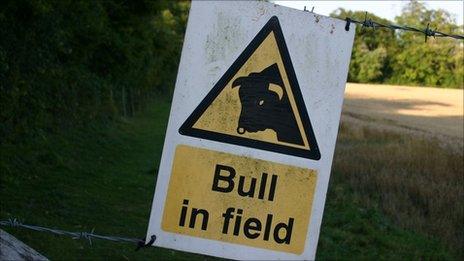Community buyout plans at 'bulls-for-hire' farm
- Published
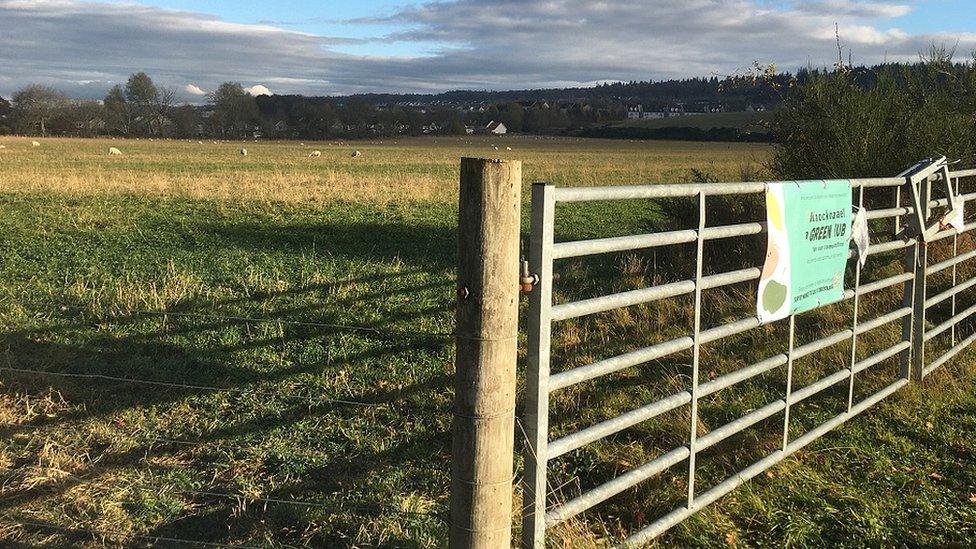
A community takeover of a field at Knocknagael has been proposed
For more than a century, farmland near Inverness has been home to a herd of government-owned bulls which are hired out to crofters.
In recent years the stud scheme has seen off threats to its future, while plans to build houses on the land have been rejected. Now the local community wants to buy some of the land and ensure it remains as a green space.
The Scottish government owns more than 100 stud bulls on its 326-acre (132 ha) farm at Knocknagael on the south-west side of Inverness.
They are there because of a scheme which dates back to Victorian times.
After laws were passed in 1897, crofters were offered bulls and rams free of charge to help improve the quality of calves and lambs.
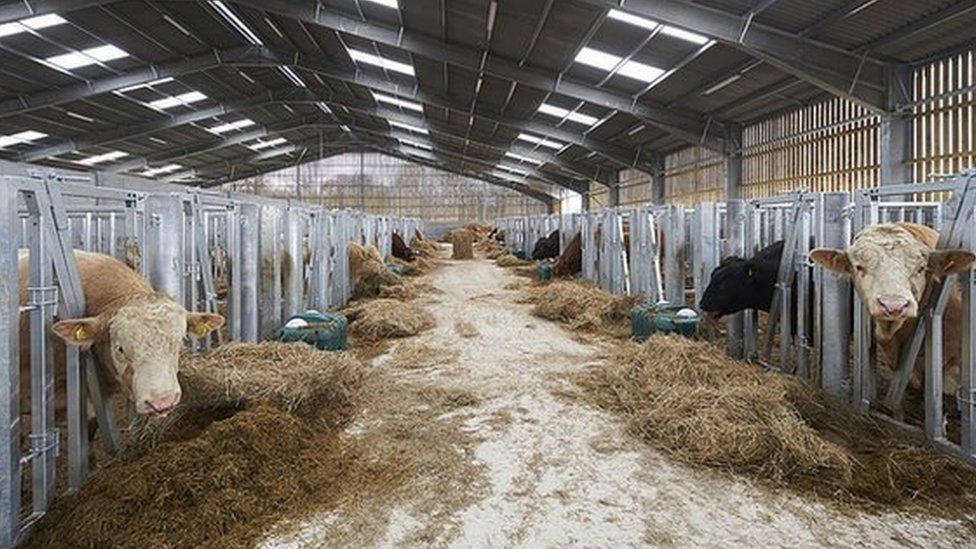
Today's bull stud has its roots in a scheme started in Victorian times
Aberdeen Angus bulls were chosen to breed with crofters' Highland and Shorthorn cross-bred cows.
In the aftermath of World War Two, crofters had to start contributing to the cost of keeping the animals at the Inverness farm during the winter.
A fee for hiring the bulls was introduced in the 1960s.
Aberdeen Angus bulls eventually fell out of favour, to be replaced by Herefords and Simmentals in the 1980s and then Limousins in the 1990s.
After the Scottish government took over the scheme from the Crofting Commission, there was a move to wind it up in 2010 because of a declining use of the bulls and rising costs of keeping the animals.
However, following protests from some crofting communities, the government decided to continue running the scheme at a reduced level.
Housing developments
It was also agreed to revamp the stud farm, something that had been needed for some time.
In 2013, the Scottish government said it had "secured the future" of its Crofting Cattle Improvement Scheme by investing about £3m in the stud.
Outdated buildings have been demolished and new ones built.
Today, four staff at Knocknagael are responsible for managing the bulls and operating the scheme. In 2019 they hired out 117 bulls to 494 crofters.
But for communities living near the farm, one concern about its future has remained.
Over the past 30 years, eight Inverness farms have been "lost" to housing developments as the city has grown in size.
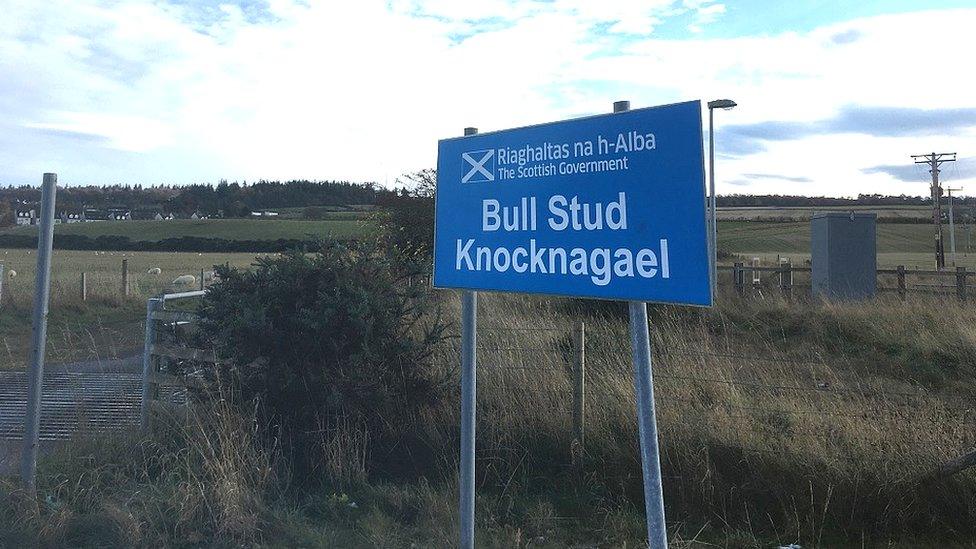
Some of those living near Knocknagael have been worried that its "prime" farmland could also disappear under concrete.
In 2011, the Crofting Commission had suggested that fields which were surplus to requirements could be sold for housing to help fund the modernisation of the stud.
After taking over the running of the farm, the Scottish government sought planning permission in principle in 2013 for up 190 homes on three fields.
Two years later, those proposals were rejected by a planning official who recommended that Knocknagael should be retained for agricultural use.
Now some in the community are trying to ensure that at least some of the farmland will not be at risk from housing plans in the future.
Knocknagael Limited, a not-for-profit community organisation, wants to take over of a 24-acre (10ha) field. It hopes to apply for funding from the Scottish Land Fund for the asset transfer next year.
Community garden
It has already been awarded funding for its feasibility work and is now trying to raise awareness about its plans in the area and has a public consultation running until 27 November.
The organisation wants to transform the field into allotments, a community garden and an area for growing organic food to supply local customers, as well as an orchard and space where people can walk and gather outdoors.
Maria de la Torre, one of those involved in the project, said allotments in Inverness were already oversubscribed.
One of them has more than 90 people interested in taking up plots whenever they might become available.
Ms de la Torre said the Covid-19 pandemic had also heightened people's interest in being more self-sufficient and the desire for locally-grown produce.
"We know there is a strong demand for allotments, but we really need to hear from those that have an interest in the project happening," she added.
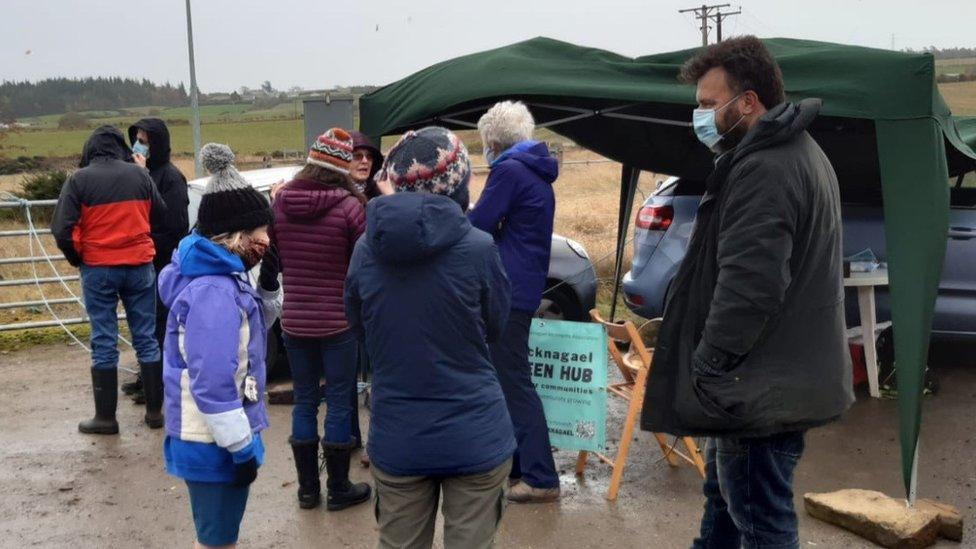
A community group is leading the efforts to takeover a field at Knocknagael
Scottish Greens MSP John Finnie has offered his support and has urged more local people to get involved.
The Scottish government has stressed that Knockngael's future as a working farm is secure.
It said a tenancy had been created for a young family at neighbouring Balrobert Farm, which meant fields previously identified as surplus were now "integral to the farm management plans" of Knocknagael.
The government also seems open to the idea of community involvement in the farmland.
A spokesman said: "We are also committed to allotments and grow-your-own initiatives and helping increase access to affordable, healthy, sustainable food for all, and would welcome the opportunity to explore how we could deliver allotments alongside the farming operations at Knocknagael."
So the story of Knocknagael looks set to grow and grow.
- Published24 March 2015
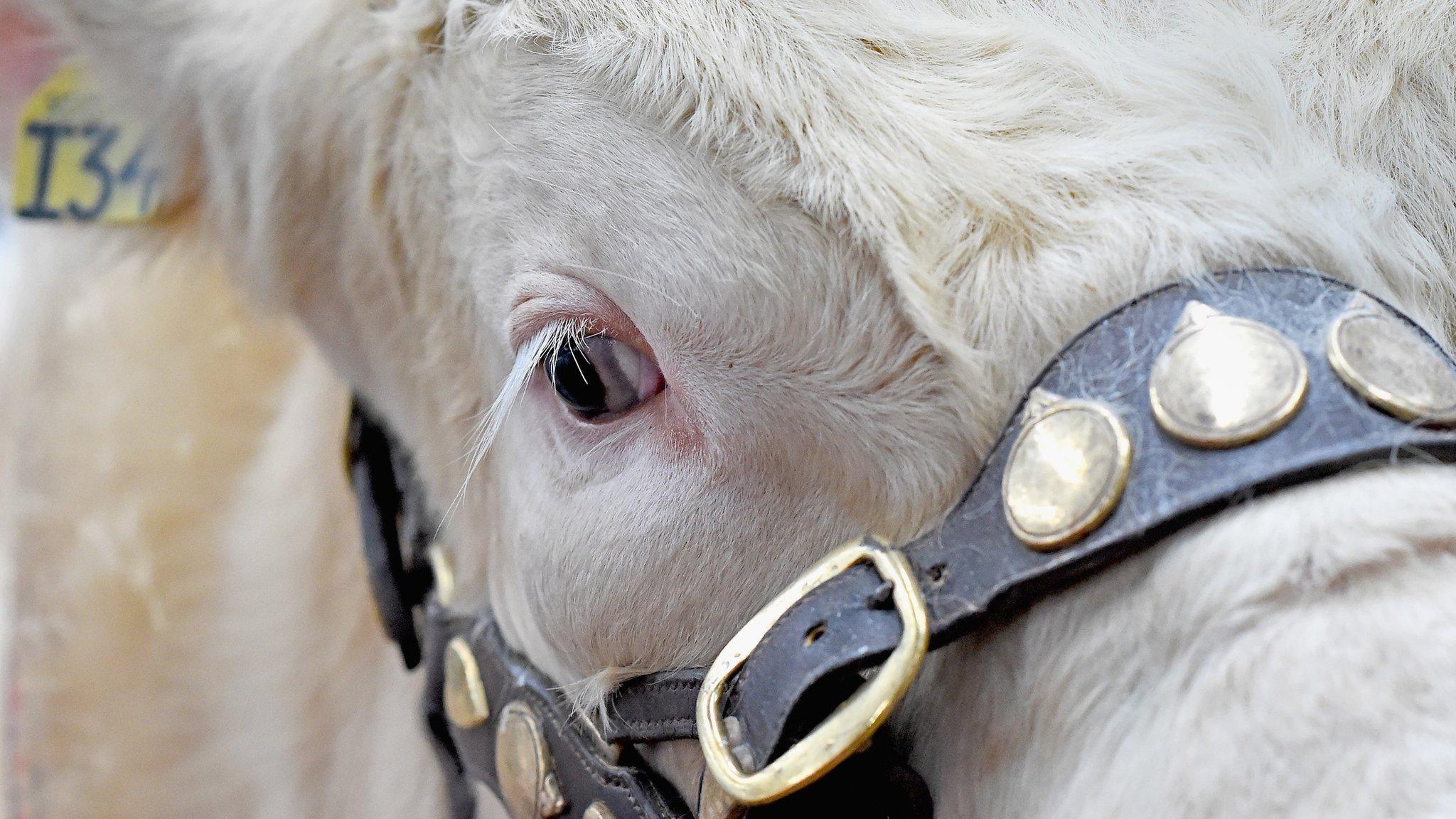
- Published29 April 2013
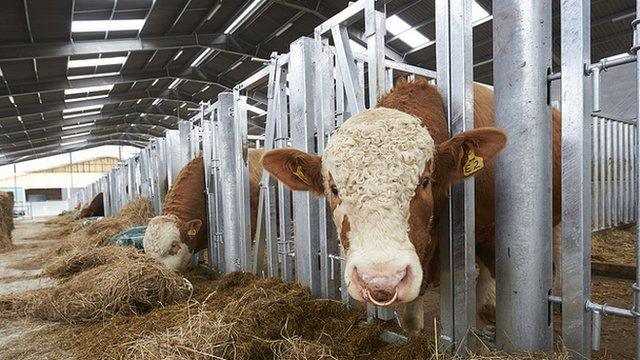
- Published14 March 2013
